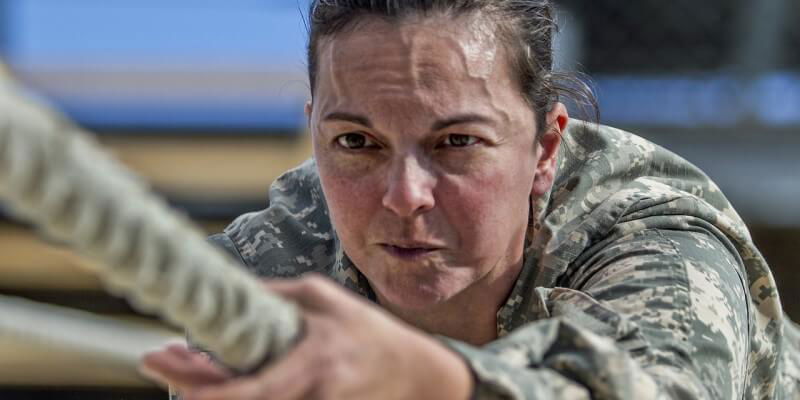Leadership is an essential skill that is needed in all areas of life, whether it be in the workplace, at school, or in everyday situations. To enhance and develop leadership skills, it is important to engage in a variety of activities, building games, and exercises that focus on teamwork, communication, problem-solving, and decision-making.
There are numerous leadership activities that can help individuals become better leaders and improve their overall effectiveness. Here are 83 leadership activities, building games, and exercises that can be used to develop and enhance leadership skills:
1. The Trust Fall: A classic team-building activity where one person falls backward and is caught by their teammates, building trust and communication.
2. Human Knot: A game where participants have to untangle themselves from a knot without letting go of each other’s hands.
3. Blindfolded Minefield: Teams guide a blindfolded member through a “minefield” of obstacles using only verbal instructions.
4. Leadership Web: A team-building exercise where participants toss a ball of yarn around while sharing leadership qualities.
5. Survival Scenario: Teams must rank items in order of importance for survival in a hypothetical scenario.
6. Egg Drop Challenge: Teams must build a contraption to protect an egg from a high fall, testing creativity and problem-solving skills.
7. Communication Skills Workshop: Exercises to improve verbal and nonverbal communication skills.
8. Decision-Making Exercises: Activities that focus on making effective decisions under pressure.
9. Conflict Resolution Role-Play: Participants act out scenarios where they must resolve conflicts in a diplomatic manner.
10. Problem-Solving Scenarios: Teams work together to solve complex problems using critical thinking skills.
11. Leadership Styles Quiz: Participants identify their leadership style and learn how to adapt to different situations.
12. Leadership Development Plan: Individuals create a plan for improving their leadership skills over time.
13. Teamwork Challenges: Activities that require collaboration and cooperation among team members.
14. Leadership Book Club: Participants read and discuss books on leadership to gain new insights and perspectives.
15. Active Listening Exercises: Activities that focus on improving listening skills and understanding others’ perspectives.
16. Diversity and Inclusion Training: Workshops that promote diversity and inclusivity in leadership roles.
17. Emotional Intelligence Workshop: Exercises to enhance emotional intelligence and empathy.
18. Time Management Skills Workshop: Activities to improve time management and prioritization skills.
19. Public Speaking Practice: Opportunities for participants to practice speaking in front of a group and receive feedback.
20. Networking Events: Activities that encourage participants to build relationships and network with others in their field.
21. Vision Board Creation: Participants create vision boards that represent their goals and aspirations as leaders.
22. Leadership Retreat: A weekend getaway focused on personal development and leadership training.
23. Team Building Games: Fun and engaging games that promote teamwork and collaboration.
24. Strengths-Based Leadership Assessment: Participants identify their strengths and how to leverage them in leadership roles.
25. Mentorship Program: Pairing individuals with mentors who can provide guidance and support in their leadership journey.
26. Leadership Conference: Attending conferences and workshops to learn from experts in the field.
27. Mock Interviews: Practice interviews to improve communication and presentation skills.
28. Leadership Simulation Games: Virtual games that simulate real-world leadership scenarios.
29. Peer Feedback Exercises: Participants give and receive feedback from their peers to foster growth and development.
30. Leadership Journaling: Keeping a journal to reflect on experiences and track progress as a leader.
31. Executive Coaching Sessions: Working with a coach to receive personalized guidance and feedback on leadership skills.
32. Strengths-Based Team Building: Utilizing team members’ strengths to maximize team performance.
33. Leadership Roundtable Discussions: Engaging in conversations with other leaders to share ideas and insights.
34. Leadership Development Workshops: Training sessions that focus on specific leadership skills such as communication, decision-making, and conflict resolution.
35. Storytelling Sessions: Sharing personal stories and experiences to inspire and motivate others.
36. Leadership Quotes Analysis: Reflecting on quotes from famous leaders to gain wisdom and inspiration.
37. Role-Playing Scenarios: Acting out situations where participants must demonstrate leadership qualities.
38. Creativity Workshops: Activities that encourage participants to think outside the box and come up with innovative solutions.
39. Team Building Retreat: A weekend retreat focused on team bonding and leadership development.
40. Leadership Podcasts: Listening to podcasts that feature interviews with successful leaders and experts.
41. Emotional Intelligence Assessments: Tools for assessing and developing emotional intelligence in leadership roles.
42. Self-Care Workshops: Activities that promote self-care and well-being for effective leadership.
43. Leadership Branding Workshop: Identifying personal values and strengths to create a unique leadership brand.
44. Corporate Social Responsibility Activities: Engaging in volunteer work and community service to promote social responsibility as a leader.
45. StrengthsFinder Assessment: Identifying strengths and weaknesses to enhance leadership effectiveness.
46. Personal Development Plan: Creating a plan for personal growth and development as a leader.
47. Leadership Coaching Circles: Small group coaching sessions where participants receive feedback and support from their peers.
48. Leadership Panel Discussions: Attending panel discussions with leaders from various industries to gain insights and perspectives.
49. Feedback Training: Learning how to give and receive feedback effectively to improve leadership skills.
50. Goal-Setting Exercises: Setting SMART goals and creating action plans for achieving them.
51. Vision Casting Workshop: Creating a vision statement that inspires others and guides leadership decisions.
52. Leadership Ethics Training: Discussions and activities that focus on ethical leadership and decision-making.
53. Leadership Assessment Tools: Using assessments to measure and track leadership development progress.
54. Strengths-Based Feedback Sessions: Providing feedback based on individual strengths to promote growth and development.
55. Leadership Development Webinars: Online workshops and training sessions focused on leadership development.
56. Personality Assessments: Understanding personality traits and how they impact leadership styles.
57. Conflict Management Training: Learning different strategies for managing and resolving conflicts in a leadership role.
58. Leadership Presence Workshop: Activities to improve confidence and presence as a leader.
59. Virtual Team Building Activities: Engaging in team-building exercises virtually to promote remote teamwork.
60. Leadership Skill-Building Games: Games that focus on developing specific leadership skills such as communication or decision-making.
61. Empathy Building Exercises: Activities that help participants develop empathy and understanding for others.
62. Leadership Competency Assessment: Identifying key competencies needed for effective leadership.
63. Leadership Team Building Challenges: Challenges that require teams to work together to overcome obstacles and achieve goals.
64. Resilience Training: Learning strategies for building resilience in leadership roles.
65. Accountability Workshops: Activities that promote taking ownership and responsibility for actions as a leader.
66. Leadership Strategy Sessions: Planning and strategizing for effective leadership in changing environments.
67. Mindfulness Practices: Incorporating mindfulness practices to improve focus and decision-making as a leader.
68. Team Building Workshops: Workshops focused on building strong relationships and teamwork within a group.
69. Leadership Development Programs: Long-term programs that focus on developing leadership skills over time.
70. Leadership Vision Setting: Setting a clear vision for the future and communicating it to team members.
71. Feedback Surveys: Collecting feedback from team members to assess leadership effectiveness.
72. Conflict Resolution Workshops: Learning strategies for effectively managing and resolving conflicts in a leadership role.
73. Leadership Strengths Assessment: Identifying and leveraging strengths for effective leadership.
74. Leadership Development Retreat: A retreat focused on personal growth and leadership development.
75. Emotional Intelligence Workshops: Activities to improve emotional intelligence and self-awareness in leadership roles.
76. Decision-Making Training: Learning techniques for making effective decisions in leadership roles.
77. Communication Skills Development: Activities to improve verbal and nonverbal communication skills as a leader.
78. Team Building Challenges: Challenges that promote teamwork and collaboration among team members.
79. Leadership Networking Events: Attending events to connect with other leaders and build relationships.
80. Conflict Resolution Role-Playing: Practicing resolving conflicts in a simulated setting to develop conflict resolution skills.
81. Problem-Solving Scenarios: Working together to solve complex problems and develop critical thinking skills.
82. Leadership Retreat: A retreat focused on personal development and leadership training.
83. Team Building Games: Fun and engaging games that promote teamwork and collaboration among team members.
These leadership activities, building games, and exercises can be tailored to the specific needs and goals of individuals or teams. By engaging in these activities regularly, individuals can develop essential leadership skills and become more effective leaders in their respective fields. Leadership is not just about giving orders or being in charge; it is about inspiring and guiding others to achieve common goals and objectives. With the right training and practice, anyone can become a great leader.



